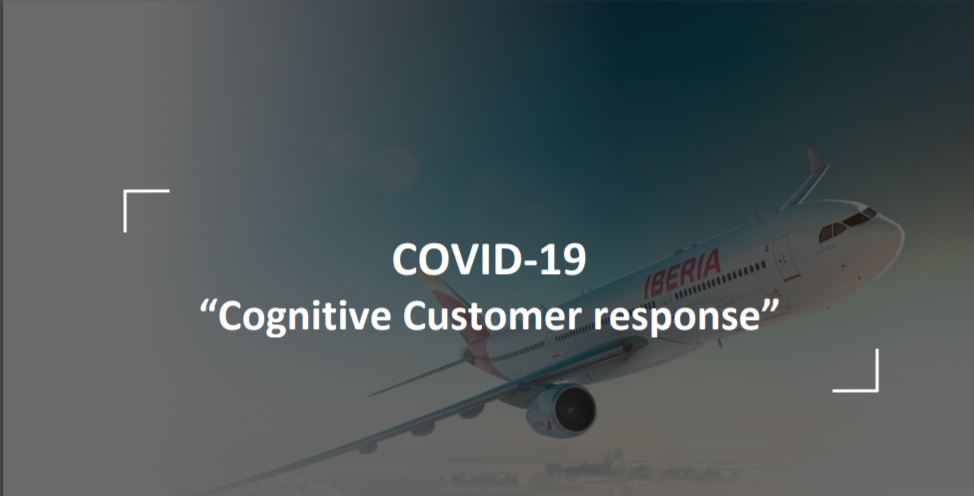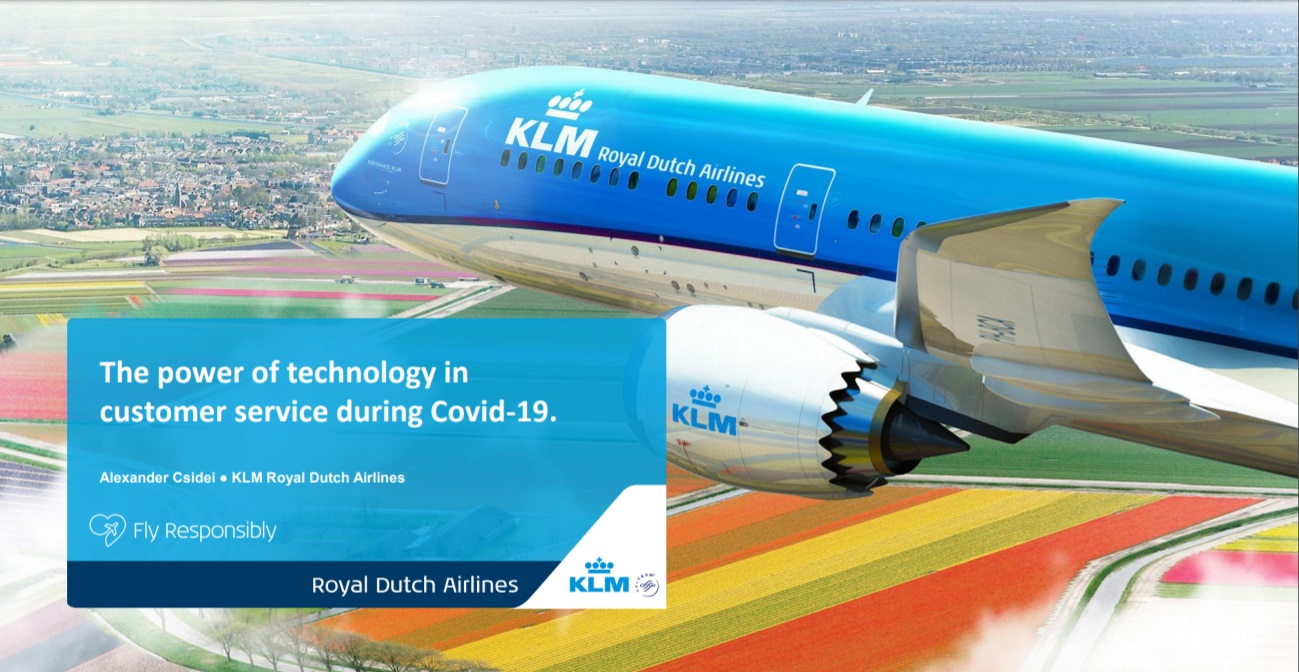IATA organized this week a webinar of how to leverage the data and digital capabilities with its second episode where the topic was on the customer service in times of crisis such as COVID-19.
IATA organized a webinar as part of its series to help its members and aviation community into how to combat the crisis of COVID-19 with digital capabilities.
The subject of its 2nd episode was: customer service.
The moderator of the event was Mr. Houman Goudarzi, Head of BI & Industry Engagement, IATA.
Dr. Joe Leader, Leveraging Data & Digital to “Flight Back” vs COVID-19
Dr. Joe Leader was the first guest of this episode. Dr. Leader pointed out on 3 core rules for airlines during this COVID-19 downturn such as focus on what you have, add what you actually need and implement quickly and efficiently. He proposed to airlines to have tools to leverage their data into actions, otherwise airlines will end up having a lot of data without any insight on what action to perform. Airlines should act proactively and take measures to reassure passengers trust which can be done more efficiently through collected data.
Automating customer service is pivotal:
- Leverage your airline app, website in ways not envisioned
- Airline app becomes COVID‐19 journey management (becomes an on-going tool for the passengers)
- Website becomes relevant information on next journey
- Turn IROPS tools (Airline Disruption Management) into COVID‐19 automated rebooking
- Chatbots work only if intelligent, empowered
- Leverage the use of PEDs to enable continuous communication beyond the fuselage and door-to-door
- Emphasize Compassion (innovative ways for refunds, flexibility)
He concluded the presentation by inviting airlines to inspire passengers to travel again as part of “Inspire Customers for Retention” program.
Guillaume Laporte, The power of AI-driven chatbot technology during times of crisis
Mr. Guillaume Laporte continued the webinar as 2nd guest who wanted to demonstrate the audience the power of chatbot using artificial intelligence. Mr. Laporte said that the conversation including the word “virus” or “covid” had spiked in the 2nd half of March 2020 and presented an insight of what people are searching for. Also, he pointed out that 4 topics such as “flight status”, “cancellations”, “refunds” and “modifications” have gone from 10% requests to 70% requests of overall total number of requests. Airlines experienced an increase of 600% of the volume of questions they usually receive while 90% of questions were related to COVID-19. It became very clear very quickly that this topic needs to be adopted in chatbots. He concluded the presentation by saying that airlines should leverage the right technologies in times of crisis such as Robotic process automation (RPA) and self-service to cut costs, increase user satisfaction and better utilize human agents.
Gabriel Perdiguero, IBERIA: Conversational AI role during COVID-19
Mr. Gabriel Perdiguero is Chief Transformation Officer from Spanish airline, Iberia. Iberia took the transformation approach to utilize data, technology and agile organization to provide value from its innovative approach using this kind of approach. As part of their transformation approach, they have implemented a chatbot to help them respond to customer requests. They have utilized their website, Facebook and Whatsapp as main communication channels for the chatbot. They received on Whatsapp 450 000 messages in March which is an increase of 300% in compare to February 2020. There were 72% successful conversations. On other platform, Facebook and website, they generated 250 000 messages in March which was an increase of 200% in compare to February 2020. The success rate of conversations was 88%. What they were very proud of was that they managed a peak of interactions that was around 15x the expected traffic with a good performance in terms of platform, services and architecture. Their top requests were voucher requests, flight status, manage bookings, requests to talk to agent, suspended flights.

Meltem Uysaler, IATA: From Customer Service to Customer Impact
Miss Meltem Uysaler who is a a director at Customer Service Center at IATA elaborated that every customer interaction is an opportunity. She said that customer data leads to customer insight and finally to customer impact. Basically customer data reflect customer needs, preferences, problem areas, behaviors and expectations etc. Miss Uysaler shared key learnings from IATA’s experience with customer service from COVID-19 crisis: build your CX (Customer Experience) vision, develop your CX framework, implement the right measurable framework, link your KPIs to customer impact and finally foster a customer-centric culture.

Alexander Csidei, KLM: The Power of Technology in Customer Service during COVID-19
Mr. Csidei is Social Mediahub Manager, KLM who had started his career as a flight attendant 24 years ago in KLM and then joined afterwards the commercial department. KLM Social Media team was founded after a crisis that happened 10 years ago in April 2010 with the Eyjafjallajökull volcanic eruption in Iceland where they utilized Facebook and other social media to respond to passengers requests. KLM social team currently handles over 35.000 requests per week with 24/7 service. To handle these many requests, KLM created an AI that responds to most common requests and saves time for its staff for more serious requests. However, COVID-19 brought them 10x bigger volume of requests and due to lockdown around the world, the occupancy of their customer service was lower. To combat the issue, KLM made adjustments in queue and priority setting with more serious cases solved by experts and easier cases by volunteers who assisted the team. Mr. Csidei also mentioned that they released a “Corona bot”, AI bot that handles the easier requests and it helped them answer 10% of total requests automatically.

The event was concluded by a panel of all guests and Mr. Goudarzi announced the third episode which will have the topic of plan recovery.







